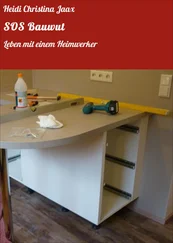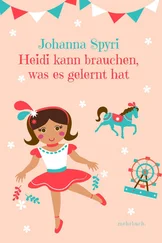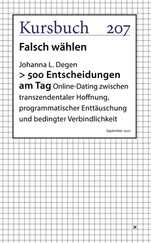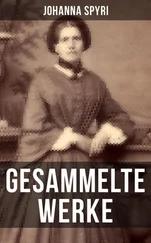Johanna Spyri - Heidi
Здесь есть возможность читать онлайн «Johanna Spyri - Heidi» — ознакомительный отрывок электронной книги совершенно бесплатно, а после прочтения отрывка купить полную версию. В некоторых случаях можно слушать аудио, скачать через торрент в формате fb2 и присутствует краткое содержание. Год выпуска: 2009, ISBN: 2009, Издательство: Penguin Books Ltd, Жанр: Детская проза, на английском языке. Описание произведения, (предисловие) а так же отзывы посетителей доступны на портале библиотеки ЛибКат.
- Название:Heidi
- Автор:
- Издательство:Penguin Books Ltd
- Жанр:
- Год:2009
- ISBN:9780141919010
- Рейтинг книги:2.5 / 5. Голосов: 2
-
Избранное:Добавить в избранное
- Отзывы:
-
Ваша оценка:
- 60
- 1
- 2
- 3
- 4
- 5
Heidi: краткое содержание, описание и аннотация
Предлагаем к чтению аннотацию, описание, краткое содержание или предисловие (зависит от того, что написал сам автор книги «Heidi»). Если вы не нашли необходимую информацию о книге — напишите в комментариях, мы постараемся отыскать её.
With a delightfully nostalgic introduction by award-winning author, Eva Ibbotson.
Heidi — читать онлайн ознакомительный отрывок
Ниже представлен текст книги, разбитый по страницам. Система сохранения места последней прочитанной страницы, позволяет с удобством читать онлайн бесплатно книгу «Heidi», без необходимости каждый раз заново искать на чём Вы остановились. Поставьте закладку, и сможете в любой момент перейти на страницу, на которой закончили чтение.
Интервал:
Закладка:
Heidi awoke next morning and looked around her, quite forgetting all that had happened to her the day before. She couldn’t think where she was. She rubbed her eyes and looked again, but that made no difference. She was in a big room, in a high white bed. There were long white curtains in front of the windows and two big armchairs and a sofa, covered with some beautiful flowery material; there was a round table, and on a washstand in the corner stood a number of things that she had never seen before. All at once she remembered all that had happened to her overnight, particularly the instructions the tall lady had given her, so far, that is, as she had heard them.
She jumped out of bed and dressed quickly. Then she went first to one window, then to the other, and tried to pull back the curtains so that she could see what was outside. They were too heavy to pull so she crept behind them, but then the windows were so high that she could only just peep through them. And wherever she looked there was nothing to be seen but walls and windows. She began to feel rather frightened. At Grandfather’s she had always gone out of doors first thing in the morning to have a good look round, to see whether the sky was blue and the sun shining, and to say good morning to the trees and flowers. She ran from window to window frantically, trying to open them, like a wild bird in a cage, seeking a way through the bars to freedom. She felt sure that if she could see what was outside, she would find grass somewhere, green grass with the last snow just melting from it. But though she pushed and tugged and tried to put her little fingers under the frames, the windows stayed tight shut. After a while she gave up. ‘Perhaps if I went out of doors and round to the back of the house, I’d find some grass,’ she thought. ‘I know there were only stones in front.’
Just then there was a tap at the door and Tinette put her head round it, snapped out, ‘Breakfast’s ready,’ and shut it again quickly. Heidi hadn’t the least idea what she meant, but she had sounded so fierce that Heidi thought she was being told to stay where she was. She found a little stool under the table and sat down, to see what would happen next. It was not long before Miss Rottenmeier came bustling in, very annoyed, and scolding all the time. ‘What’s the matter with you, Adelheid? Don’t you even know what breakfast is? Come along at once.’ This at least Heidi could understand, and she followed her obediently into the dining‐room. Clara had been waiting there for some time but gave her a friendly greeting. She looked more cheerful than usual, for she had an idea she was going to have quite an interesting day.
Breakfast passed without further incident. Heidi ate her bread and butter quite nicely, and when the meal was over Clara was wheeled into the study and Heidi was sent with her and told to wait there until Mr Usher arrived. As soon as the two girls were alone, Heidi asked, ‘How can I look out of the window and see what’s down below?’
‘First the window has to be opened,’ said Clara, with a smile.
‘But they won’t open,’ Heidi answered.
‘Oh yes, they will, but you can’t do it yourself and nor can I. But Sebastian will open one for you if you ask him.’
Heidi was relieved to hear that. Then Clara began to ask about her life at home and Heidi was soon chattering away merrily about the mountains and the goats and all the other things she loved so well.
While they talked the tutor arrived, but instead of coming straight to the study as usual, he was waylaid by Miss Rottenmeier who took him into the dining‐room to explain the awkward situation in which she found herself.
‘Some time ago when Mr Sesemann was in Paris on business,’ she began, ‘I wrote to tell him that Clara ought to have a companion of her own age. She wanted it, and so did I, for I thought she might work harder at her lessons if she had some competition, and also the companionship would be pleasant and good for her. It would also spare me the necessity to keep her amused all the time, which, believe me, is not easy. Her father agreed, but insisted that the other child should be treated exactly the same as his own daughter. He wrote he would not have any child in his house put upon in any way. A most uncalled‐for remark, I must say. No one here would be likely to do any such thing!’
She then told him of Heidi’s arrival and how utterly unsuitable she found her, in every way. ‘Fancy, she doesn’t even know her alphabet, and has no idea how to behave in polite society. There seems to me only one way out of this dreadful situation, and that is for you to say that it is impossible to teach these two children together without holding back Clara quite disastrously. That would surely be reason enough to persuade Mr Sesemann to send this Swiss girl home again.’
Mr Usher was a cautious man, who always tried to look at both sides of any problem, so after several politely consoling remarks, he went on to say that perhaps things might not be as bad as she feared. If the child was backward in some ways, she might be ahead in others, and with regular lessons it might be possible to bring her on quite quickly. Miss Rottenmeier saw that she was not likely to get the support she wanted from this quarter, for obviously the tutor did not at all mind teaching Heidi her ABC from the very beginning. She showed him to the study door, therefore, and watched him go inside, but the thought of having to watch Heidi at her letters was more than she could bear. She walked about the dining‐room restlessly, wondering how the servants had better address Adelheid, for Mr Sesemann’s instruction that the child was to be treated just like his daughter could only refer to them, she thought. She was not left for long with her thoughts, however. Suddenly there was a tremendous clatter in the study, as though a lot of things had fallen down, and she heard someone call for Sebastian. She hurried into the room and found the floor strewn with books, writing paper, an inkwell, and the tablecloth, from under which a stream of ink was flowing. Heidi was nowhere to be seen.
‘This is a fine to‐do,’ said Miss Rottenmeier, wringing her hands. ‘Books, carpet, tablecloth, all covered with ink. Never have I seen such a mess. Of course it’s all that wretched child!’
Mr Usher stood looking about him in dismay. Even he could not find anything consoling to say about what had happened, though Clara seemed greatly amused by it.
‘Yes, Heidi did it — quite by accident,’ she said. ‘You must not punish her. She just rushed across the room and caught the tablecloth as she went by, and swept everything on to the floor with it. There were a lot of carriages going by in the street and I expect she wanted to look at them. I daresay she has never seen such a thing in her life before.’
‘What did I tell you, Mr Usher? The child is quite impossible. She doesn’t even understand that she ought to sit still and listen during a lesson. And where has she got to now? I suppose she’s run out of the front door. Whatever would Mr Sesemann say?’
She hurried off downstairs and found Heidi by the open door, looking up and down the street with a puzzled expression.
‘What are you thinking of? What do you mean by running away from your lessons like that?’ scolded Miss Rottenmeier.
‘I heard the fir trees rustling, but I can’t see them anywhere. I can’t even hear them now,’ replied Heidi.
It was the passing of light carriage wheels which she had mistaken for the wind blowing through the trees and which had sent her rushing joyfully downstairs to investigate, but the carriages had gone by before she got there.
‘Fir trees indeed! Do you think Frankfurt is in the middle of a wood? Just you come with me and see what a mess you’ve made,’ and Heidi was led back to the study, where she was most surprised to see what havoc she had wrought in her headlong flight from the room.
Читать дальшеИнтервал:
Закладка:
Похожие книги на «Heidi»
Представляем Вашему вниманию похожие книги на «Heidi» списком для выбора. Мы отобрали схожую по названию и смыслу литературу в надежде предоставить читателям больше вариантов отыскать новые, интересные, ещё непрочитанные произведения.
Обсуждение, отзывы о книге «Heidi» и просто собственные мнения читателей. Оставьте ваши комментарии, напишите, что Вы думаете о произведении, его смысле или главных героях. Укажите что конкретно понравилось, а что нет, и почему Вы так считаете.












